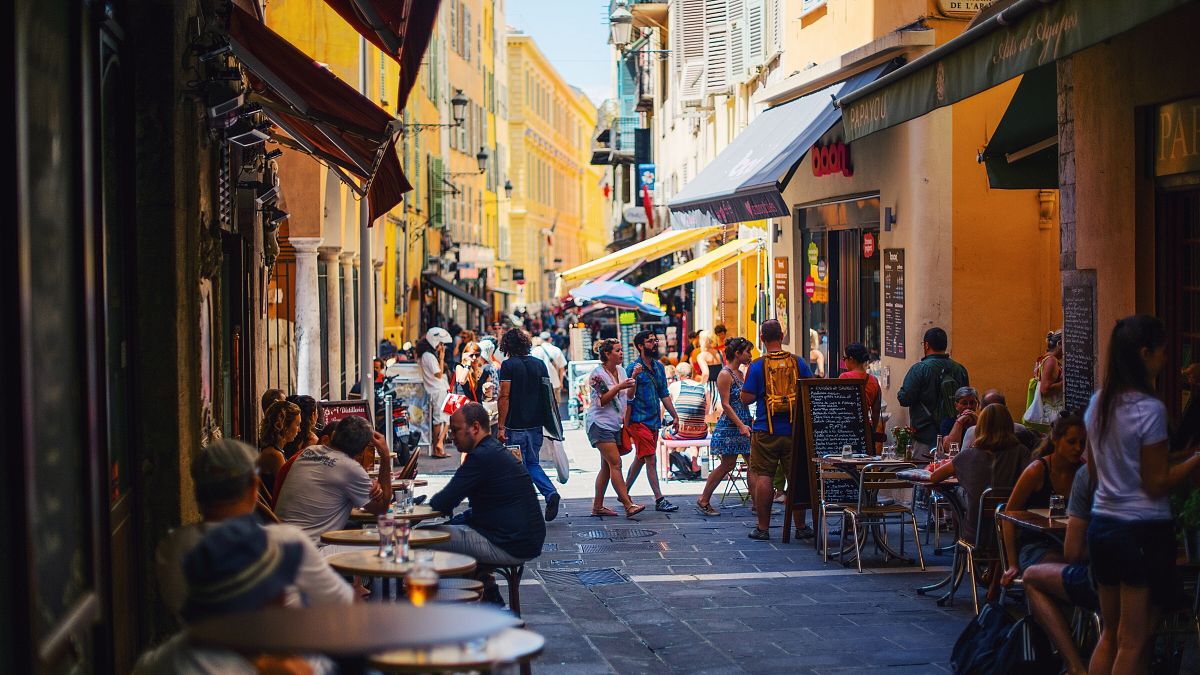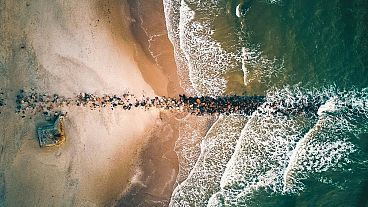Tourists faced fines for playing music too loudly and taking selfies.
With revenge travel - taking a trip that was cancelled during the pandemic - still prompting soaring visitor numbers, some popular destinations took steps to crack down on overtourism in 2023.
Some moves seemed obvious: limiting cruise ships, increasing tourist taxes and capping visitor numbers.
But other rules made headlines thanks to authorities’ - and residents’ - outside-the-box thinking.
Here are some of the strangest overtourism regulations that were brought in this year.
No towels on Sardinia’s beaches
With tourists descending in droves on Sardinia’s famed picture-perfect beaches this summer, authorities brought in a raft of regulations.
These included capping visitor numbers and introducing time limits. But Pelosa beach on the west coast also introduced a towel ban requiring sunbathers to bring mats instead which trap less sand.
Sardinia’s famed pink Spiaggia Rosa continued to remain off-limits in 2023, with a €500 fine for walking on it and up to €3,500 for anyone caught stealing sand.
€36,000 fines for playing music on Portugal’s beaches
Beachgoers in Portugal were warned earlier this year that they could face fines of up to €36,000 for playing their music too loudly.
Portable speakers blasting out tunes at high volumes that bother locals and tourists were banned by the country’s National Maritime Authority (AMN).
The AMN’s beach edict also forbids playing ball games outside of designated areas, camping outside of campsites, and making fires.
No underwear in public in Seville
The Spanish city of Seville announced a crackdown on the antisocial behaviour of stag and hen dos this year with a law to curb ‘obscene acts’ being committed in public.
Authorities planned to bring in bans on underwear in public and costumes with sexist messages.
A ban on performing or inciting acts of ‘obscene exhibitionism’ was also included in the move.
Portofino fines tourists loitering to take selfies
Portofino, a small seaside town on the Italian Riviera, has become a tourist hotspot - and locals are starting to feel the strain.
In summer, it means an influx of visitors posing for selfies, blocking paths and roads.
To combat this, Portofino’s mayor introduced no-waiting zones during the summer months this year.
Anyone caught hanging around on the quay for too long between 10:30am and 6pm risked a fine of €270.
Residents build a fence to block tourist selfies
The stunning backdrop to the town of Hallstatt in the Austrian mountains is thought to have inspired Disney’s Frozen.
As such, over a million tourists descend on the destination every year with many wanting to snap a selfie with the famous view.
This year, residents of the town became so frustrated they put up a fence to stop visitors from taking pictures.
It was later removed due to backlash on social media but it was hoped that the barrier would prevent people from gathering in one popular selfie spot and disrupting residents by making too much noise.
Fake warning signs on Spanish beaches
And finally, one of the oddest tourism crackdowns actually turned out to be fake.
Activists put up false warning signs at beaches across Mallorca to keep English-speaking tourists away.
Some posters warned of “dangerous jellyfish”, “falling rocks” or seawater polluted with sewage.
Others said that the beach is closed with a ‘no swimming’ symbol below or warned that it takes hours to walk there despite the ocean being less than 100 metres away.
A few small lines of text in Catalan underneath, however, revealed to locals that these warnings weren’t real.
They explained that “the problem isn’t a rockfall, it’s mass tourism” or that the “beach is open, except for foreigners and jellyfish.”



